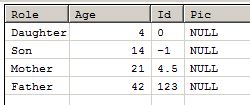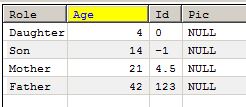Well, today has been a day that I expect most people do not experience.
Today I was given a piece of paper that says I am a Germany citizen. Along with about 60 people, I was at a small ceremony where we were given our citizenship certificates.
I know that I was not the only British citizen there. Whilst going through the relatively simple process I was told by the civil servant that there was a significant increase in the number of British people applying for German nationality. The civil servant said it was nearly all due to Brexit. I know that that was my reason for applying.
No, I will not be handing in my British passport, although I do believe that Brexit is fundamentally a stupid jingoistic thing to do.
I was born in a little village, St. Florence, in the south west corner of Wales, in the county of Pembrokeshire. Now, Pembrokeshire is a county that is split in to two. The north/east part is Welsh, whilst the south/west corner is called Little England beyond Wales.
There is a dividing line called the Landsker that runs though Pembrokeshire, apparently Landsker is a old Anglo-Saxon word that has a meaning related to land divisions.
Way back in history, when England’s kings and Queen Elizabeth I were trying to impose their rule on Ireland, this south west corner of Pembrokeshire was used as a military base from which the English could nip over to Ireland. This part of Pembrokeshire had to be a safe base for the English, so ultimately the welshness of the area was, over many centuries, subdued. This got the south west corner of Pembrokeshire the name Little England beyond Wales .
When I started primary school in 1959, there was no Welsh language teaching in the school. The school was built in the late 1800’s so it had things such as honour rolls of the village people who had died in the Great War of 1914-1918. These rolls, and all of the other paraphernalia and regalia, were in English, although the names were clearly Welsh: Jones, Lewis, Thomas, Williams,… But one should note that these are common throughout the UK, but Welsh names such as Blethyn, Prytherch, Iwan, Rhys did not appear on the rolls.
Indeed, the only time I heard Welsh in St. Florence was if my mum was talking to Mrs. Lewis the back. One trace of welshness that we did have was a tendency to identify people by their job (hence the milkman Mr. Rowe was Rowe the milk) or by location (hence Mrs. Lewis the back who lived at the back of the village). Apart from Mrs. Lewis and my mum I do not recall ever hearing Welsh in the village.
The other time that I regularly encountered Welsh was when we visited my maternal grandmother who lived on the Welsh side of the Landsker. Granny Meaker could speak English but avoided it when possible especially when we came to visit. My mum and her mum would talk away in Welsh whilst my father and my brother/sisters and I would drink tea, eat Welsh cakes, and wait to go home. (My father was English, born in Birmingham.)
I believe that Granny Meaker hated my father on principle, and that she avoided English so she could avoid speaking to him. By all accounts my father did not want to speak to her either. Aren’t families fun!
When I was 11 and moved-up to the big school in Tenby there were one or two kids in the class who spoke Welsh, but they were bussed in from the
north, and were invariable farm children.
It was not until I went to university in Bristol that I was really confronted with an identity issue. To my English mates I was Welsh, but to the Welsh ones I was English.
Since then I have been critically aware that my nationality falls between two stools. I love the heritage of England (and the National Trust) and yet I feel the pain felt by many (the non-English British people and the Irish people) created by the English in the past.
Just for fun, check out Jane Austen and the speech made by the Baronet Sir Walter Elliot in the story “Persuasion”.
A widow Mrs Smith lodging in Westgate Buildings! A poor widow barely able to live, between thirty and forty; a mere Mrs Smith, an every-day Mrs Smith, of all people and all names in the world, to be the chosen friend of Miss Anne Elliot, and to be preferred by her to her own family connections among the nobility of England and Ireland! Mrs Smith! Such a name!
I find it strange and sad, and yet so very believable, that Scotland and Wales are not mentioned. However, this little speech strikes a chord with me. In a way it reminds me how my self identity is of little consequence.
I can stand-up and fight for Wales, or I can stand-up and fight for England. It is my choice.
But I find that I abhor divides. I consider reglious belief to be, 99%, depending on the self-identity that once assumes. Born in the UK, then probably protestant. Born in the Middle East, then possibly Islamic.
This insight suggests most strongly to me that religion and nationality are just other names for jingoism, or tribalism.
It is probably no surprise that I do not follow any football team, or rugby team, or indeed any other team. I disagree with the idea of us and them.
I do not mind a game, I do not mind people being in teams, but I do object to the tribalistic attitude that so often comes from teams.
As a general rule I believe that together is better than apart.
Now, to bring this blog to a close:
- I saw the EU as a step toward together and away from apart.
- I see Brexit as just another team playing at jingoism and the old mine is bigger than yours.
One of the drivers for me taking on Germany nationality was to support together, and one of the reasons why I will not give up my British nationality is I will not promote apart.

